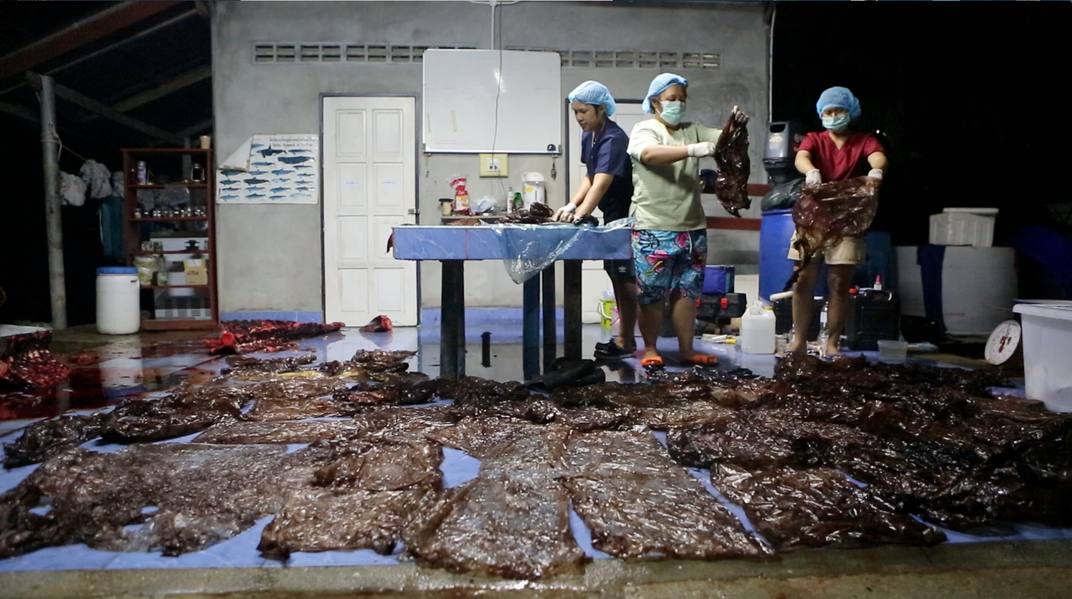Whale Dies in Thailand With 80 Plastic Bags in Its Stomach
A five-day rescue effort could not save the animal, which started vomiting up pieces of plastic before it died
Last week, a male pilot whale was seen floating strangely in the waters off Southern Thailand. Government veterinarians and conservationists arrived on the scene, propped the whale up on buoys so it wouldn’t drown, held an umbrella over its head to shield it from the sun and started giving it medicine and fluids.
For five days, they tried to save the animal. But the whale did not improve. On June 1, it began vomiting up pieces plastic.
As Marilia Brocchetto and Kocha Olarn report for CNN, the whale died that afternoon. Inside its stomach, veterinarians found around 80 plastic bags weighing more than 17 pounds.
Thai officials believe that the whale ate the bags thinking they were food, according to Alex Horton of the Washington Post. Pilot whales primarily subsist on squid, but they will eat other things—octopus, small fish, cuttlefish—if squid prove hard to find.
Graphic autopsy photos posted to social media show a tangle of black plastic bags lying next to the whale’s innards. Thon Thamrongnawasawat, a marine biologist and lecturer at Kasetsart University, tells the Agence France-Presse that the refuse likely made it impossible for the whale to eat any real food.
“If you have 80 plastic bags in your stomach, you die,” he says.

The pilot whale’s death offers yet another disturbing reminder of the dire impact of pollution on the world’s marine creatures. In April, 64 pounds of trash were found in the digestive tract of a juvenile sperm whale that washed ashore in southern Spain. In 2016, researchers discovered large amounts of plastic debris—including a car engine cover—inside the stomachs of 13 sperm whales that washed up on a German beach.
Scientists have estimated that there are 5.25 trillion pieces of plastic debris in the world’s ocean. This poses an acute risk to wildlife, which in addition to ingesting the plastic, can get tangled up in the trash or suffocate on it. In January of this year, results from a four-year study suggested that plastic pollution leads to an increased risk of infection in coral reefs, threatening the habitat of many marine animals.
Thailand is one of the world’s largest consumers of plastic bags, according to the AFP. Last month, the Bangkok Post reported that an average of 8.7 plastic bags are used every day by residents of Bangkok alone. Government officials have proposed placing a tax on plastic bags to discourage their use.
“It’s a huge problem,” Thamrongnawasawat, the marine biologist, tells the AFP. “We use a lot of plastic.”